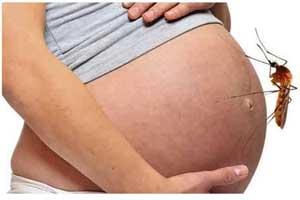- Home
- Editorial
- News
- Practice Guidelines
- Anesthesiology Guidelines
- Cancer Guidelines
- Cardiac Sciences Guidelines
- Critical Care Guidelines
- Dentistry Guidelines
- Dermatology Guidelines
- Diabetes and Endo Guidelines
- Diagnostics Guidelines
- ENT Guidelines
- Featured Practice Guidelines
- Gastroenterology Guidelines
- Geriatrics Guidelines
- Medicine Guidelines
- Nephrology Guidelines
- Neurosciences Guidelines
- Obs and Gynae Guidelines
- Ophthalmology Guidelines
- Orthopaedics Guidelines
- Paediatrics Guidelines
- Psychiatry Guidelines
- Pulmonology Guidelines
- Radiology Guidelines
- Surgery Guidelines
- Urology Guidelines
Prenatal exposure to malaria increases risk in early life

A new study has found that prenatal exposure of babies to malaria could increase their susceptibility to the disease in early life.
The study led by ISGlobal, the Clinical Research Unit of Nanoro (CRUN) and the Institute of Tropical Medicine Antwerp (ITM) has found that exposure of babies to malaria in the womb considerably alters their innate immune response. The results of the study have been published in BMC Medicine.
Malaria is a life-threatening disease caused by parasites that are transmitted to people through the bites of infected female Anopheles mosquitoes. It is endemic in many parts of India yet there are suspicions that the entire burden of the disease is not documented.
According to researchers, the susceptibility to Malaria is more when the placenta has been infected and the results could help explain why some babies are more susceptible to malaria than others during their first year of life.
In this study, the research team evaluated whether prenatal exposure to malaria could lead to changes in the so-called innate immune response. The innate immune response does not involve antibodies and represents the new-borns’ first line of defence against malaria.In order to do this, the researchers determined the type of prenatal exposure (i.e. systemic infection versus acute, chronic or past placental infection) in a cohort with over 300 mothers and their babies that had participated in a clinical trial in Burkina Faso. Using cord blood, they assessed the production of cytokines and chemokines (mediators of the immune system) upon incubation with a series of molecules that are common to many pathogens and recognised by cells from the innate immune system.
They found that blood cord cells from babies exposed to malaria produced fewer mediators when non-stimulated, as compared to unexposed babies. However, cells from babies exposed to past placental infection were hyper-reactive upon stimulation
“The different effect on the newborn’s immune response depending on the type of exposure may explain why some babies are more susceptible than others to developing malaria,” explains Carlota Dobaño, ISGlobal researcher and co-director of the study together with Anna Rosanas-Urgell, from ITM. “This may also have implications regarding how these babies respond to other infections or to vaccines that contain adjuvants”, she adds.
Given that past placental malaria, which potentially occurs early during pregnancy, has a profound effect on the newborn’s immune response, the authors conclude “a strategy to screen and treat malaria should be implemented as early as possible in the first trimester.”
Magloire Natama is the paper’s first author, which is part of his PhD project at ITM in Antwerp, Belgium, and CRUN in Nanoro, Burkina Faso. "Our findings emphasise how important it is to motivate women living in endemic settings to seek prenatal care, for their own health and that of their children," saidNatama.
For further reference log on to :
https://doi.org/10.1186/s12916-018-1187-3

Disclaimer: This site is primarily intended for healthcare professionals. Any content/information on this website does not replace the advice of medical and/or health professionals and should not be construed as medical/diagnostic advice/endorsement or prescription. Use of this site is subject to our terms of use, privacy policy, advertisement policy. © 2020 Minerva Medical Treatment Pvt Ltd